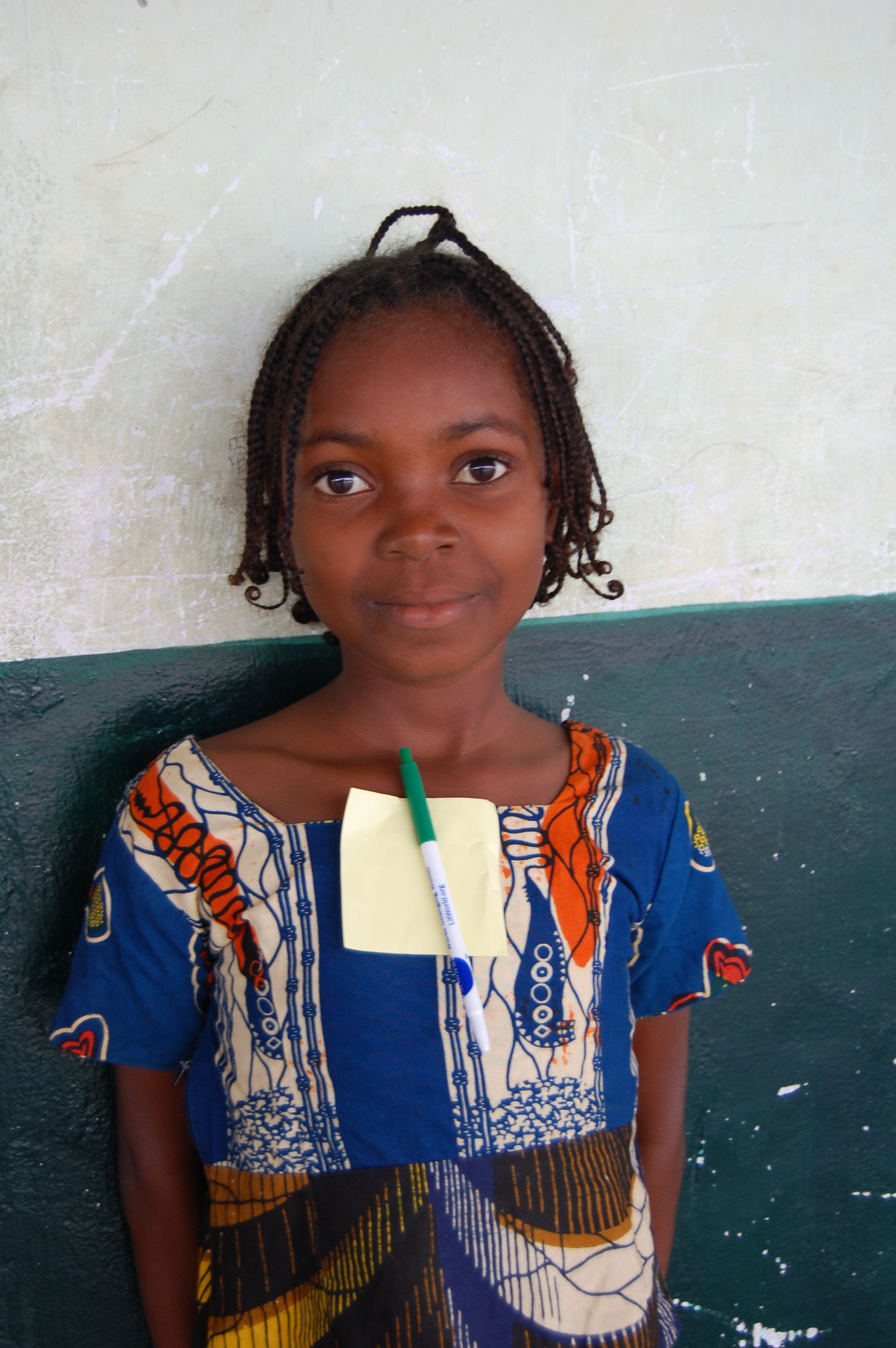There is a photo I carry with me everywhere I go.
It is a photo of a little girl. She is nine years old. She is wearing a post-it on her lapel, held in place with a pen. While I was conducting a teacher training in her school in Liberia, she was carefully watching everything I did. When I came outside, I realized she was teaching her entire school of 400 children how to do all the things I was just teaching her teachers. I thought: "She is going to make a difference. She will be a great and wonderful teacher someday."
When I returned months later, she was gone. At that young age, she disappeared from school, staying home to help her mother with the housework, home to take her place with her many sisters who had not finished school. I tried to find her again, but never could. I wonder: what would she have written on her post-it? What are the stories she would have told? This work I do is a tribute to her. I cannot find her (although I always look) but I do my work in her honor and in her spirit. There are too, too many lost girls.
Reading and sharing stories during those years before we turn 21 is incredibly important in shaping one's sense of self. I remember how much the books of my own childhood shaped me: I could be Lucy, slipping through the big door of the wardrobe and into Narnia, where she became powerful, able to talk to animals and lead with a lion; I could be Jo, in the attic writing stories; I could be Nancy Drew, solving mysteries and crimes, never afraid. I could be my grandmother, who created and crafted her own life story and shared it with me.
From these visceral memories of my own childhood, the resonant impact of literature on my life, and the deepest most profound sense of community I've experienced with colleagues, friends and family, I created LitWorld, and the Stand Up for Girls program to advocate for girls as readers, writers, and storytellers.
My entire work is based on this idea: that you can use what you have to become fully empowered. And that what we all have is stories of our own. I want to make sure girls get the stories I got: stories of strong people, and big ideas, and that as early as possible, girls understand that their own stories matter, to them and to others. Personal narrative is a vital part of seeding literacy.
I read E.B. White's Charlotte's Web aloud to one of the Girls' LitClubs I formed in Kibera, Kenya, a slum community where women and girls bear a disproportionate burden of hardships. After reading, Diana, age twelve, said to me: "Pam, the part that really changed me was when Fern grabbed her father's arm as he went to the barn to kill little Wilbur. It changed me because I had never seen a girl do that, I had never seen a girl stand up to a man."
I listen to the stories of Mercy, Daija, Rebekah, Maria, Cynobia, Leah, Peachy, and many, many more. Their stories are of resilience, of Ariya walking long distances to school, on dark pathways, home to cook dinner for her family; of Diana carrying around a photo of her mother dying of AIDS, the only photo she has; of Sarit caring for her siblings in a village without electricity and trying to read the novel she loves before the sun goes down. I stand up for all of them. And I stand up too for a group of women living in extreme poverty in Haiti who join together to form a story-sharing collaborative. While learning to sew, they also sew together their lives with the fabric of their stories. They are weaving together learning, community, literacy and empowerment all at once.
I am so thankful that I live in this moment of time, right now, because I am amazed and delighted by the connective heartbeat of social media. It is truly extraordinary to think we really can create a worldwide safety net for girls, and a network of advocates spreading the Stand Up for Girls movement. So stand up for your mother, your mentor, your friend or your daughter. Stand up and raise your voice for educational rights.
October 11th is the UN-sanctioned International Day of the Girl. Head to litworld.org for all the resources you need to grow the Stand Up for Girls movement in your community. Together we will carry forward the stories of girls who could be and should be able to live out all of their dreams, for there are at least 523 million girls in the world who cannot read. Let us keep standing long after October 11th in defiance of this staggering number, showing the world that the uplifting hope, potential and power of girls' own stories will triumph and create a more peaceful and prosperous world for us all.

